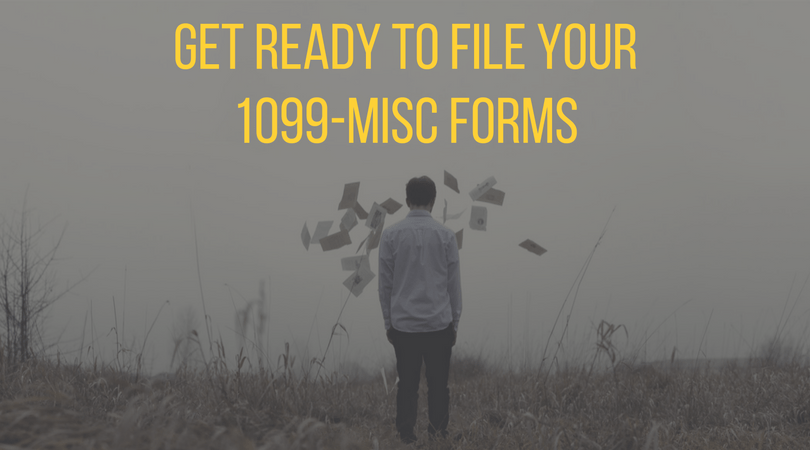With December rapidly coming to a close, 2018 is right around the corner. At the end of every year, every business who hires outside services such as contractors, has a potential Form 1099-MISC filing requirement in early 2018. The 1099-MISC seems to cause a great deal of confusion each year for which payments require filing, so let’s dive into some of the specific filing requirements. Please note the below does not cover every situation, so we recommend speaking to your tax advisor.
What is a Form 1099-MISC?
In general, the Form 1099-MISC is a tax form filing for payments over $600 to non-employee service/good providers (or those you paid over $10 of royalties to during the year).
What types of payments require filing and who actually qualifies for a filing?
Reportable amounts include payments for rent, services, prizes and awards, medical and health care payments, etc. In most situations, the payments that qualify are to independent contractors and lessors. Of course, there are many others that qualify on top of this. Luckily, personal payments are not reportable, so this is only for your business.
Are there any exemptions?
Yes, there are some exempt payments. For instance, payments to entities that are taxed as C or S corporations are exempt (this can get tricky as you will have to confirm the tax status of every LLC you make reportable payments to during a year. LLCs are able to elect to be taxed as C or S corporations if they so choose).
Also exempt are payments or rent to real estate agents or property managers, reimbursed expenses, and payments to tax exempt organizations and reimbursed expense payments. There are many other exemptions, but these are the ones that are most common.
Also, please note that payments in excess of $600 to an attorney are reportable regardless of the tax status of the attorney’s business. So, no exemptions for attorneys.
How do I obtain the necessary information required by the form?
The first thing I would recommend doing is to create a list of all vendors to whom you believe qualify based on the rules stated above. From there, request a Form W-9 from each one of them. If vendor does not have one on file, send him or her the form to fill out and send back to you.
How are they filed and when are they due?
Your Form 1099(s) are due to the IRS by February 28, 2018 if filing by paper and April 2, 2018 if filing electronically. If this isn’t enough time for you, then you may be able to obtain an extension. Note that the IRS requires the annual summary Form 1096 to be sent as a transmittal document along with 1099s.
If this is your first time filing the forms, you can order the correct forms to file on the IRS website or find them at your local office supply store. If you choose to e-file, there are many service provides out there, including the IRS Filing Information Requirements Electronically system. Note that some states and localities require filings as well, so do not forget about this!
What if I don’t want to file them?
Well, I wouldn’t recommend doing that. Non-filing or late filing penalties range from $50 to $530 per 1099 depending on when you file them. So, if you have a great number to file, I highly recommend not ignoring this requirement.
As stated above, we recommend consulting your tax advisor about which payments/entities qualify for filing. We also recommend going through the nuances of the form with your tax advisor to discuss as this article does not cover every situation that could occur. If you have any questions, please feel free to contact me directly!






